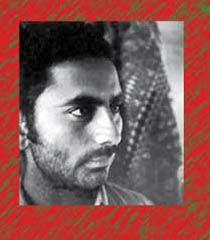Sufi Folk musicians of thar desert combat drought to live with dignity
The ensuing note tells about an effort by Mir musicians to combat desert strife in the hope of safeguarding their life affirming creativity. As drought tightens its clutches, with the advancing summers dooming lives to ever increasing daily misery, the Mirs are engaged in a valiant quest for dignity for themselves and their musical traditions that are a rich repertoire of sufiyana qalam and nirgun bhakti.
Baba Farid Rang is a small learning camp organised in a small settlement called 1PB (Pugal Branch), one of the IGNP settlements in
Most of the Mir singers are BPL families who do not really get work in the on going NREGA works that have large numbers to accommodate on their muster rolls, besides being entrenched in nepotism, delayed and irregular payments. For the Mirs it is an attempt to revive their tradition and earn a more respectable and dignified work other than just digging and carting earth.
The camp has been going on since last month supported through voluntary contributions from music enthusiasts from
Such a collective effort would be surely motivated from your kind support. You could give them an opportunity to perform. If not an opportunity for performance, some modest contribution to help carry on with this by including more musicians, both learners and ustads.
Abdul Jabbar (09784939212) and Bassu Khan (09929787552) are leaders of the camp. You could get in touch with them for supporting their music. Since correspondence to these areas is difficult, contributions could be directly put into their joint bank account the details for which are as follows:
State Bank of
Bank Code: 10408
IFC Code: SBBJ0010408
Bank Account No. : 61092898080
Cheque could be given in the name of Abdul Jabbar and Bassu Khan, and sent to
Rahul Ghai, 179 Sahyog Apartments, Mayur Vihar Phase I,

